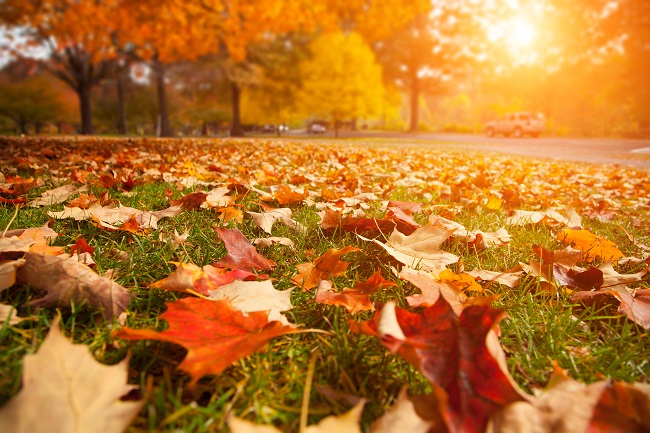Fall and Winter Commercial Lawn Maintenance
Commercial lawn maintenance is not only important in spring and summer but also during fall and winter when the green richness of your lawn lays dormant waiting for the warm rains of spring to restore its beauty. In fact, the attention you give to your business’s lawn in fall and winter directly affects how well it regrows and thrives in spring and summer.

Fall Lawn Care
Grass roots start absorbing as many nutrients from the soil as possible in fall for use during winter. This is why fertilizing your lawn in late fall is vital to generating a healthy lawn in the spring. Commercial lawn maintenance supplies should include winter fertilizer that contains less nitrogen but more potassium and about four percent phosphorous.
Potassium strengthens your lawn’s tolerance to cold by nourishing and protecting the roots. Lawns consume more nitrogen during the growing seasons but depend on potassium in winter for conserving energy necessary for regrowth in spring. In addition, winter fertilizers increase a lawn’s resistance to insect pests and fungal growths.
Applying corn gluten to your lawn in fall may help combat weeds in the spring. Referred to as a “pre-emergent” product, corn gluten meal is used as plant food and as a weed inhibitor. When a seed covered in corn gluten germinates, the gluten immediately dries out the seed and kills the sprout. It does not affect the roots of mature plants, only those which have recently
Proper mowing is also a part of fall commercial lawn maintenance. Set lawn mower blades high enough to leave at least one inch of grass for insulation purposes during the last two times your business’s yard is mowed.
Commercial Lawn Maintenance in Winter
Yard maintenance during winter includes watching for any signs of “snow or ice mold” A fungal disease readily developing in wet, cold weather, snow or ice mold causes grass root and crown rotting underneath ice and snow. Applying nitrogen to lawns in spring often eliminates the mold.
Never place extremely heavy objects (cars or trucks, for example) in a frozen yard. Doing so could severely damage large areas of the yard
When using ice-melting chemicals, do not use sodium-based granules near your lawn or other plant life. Instead, use sand or calcium chloride, since sodium is highly toxic to grass.
If you are having problems maintaining your business’s lawn, contact us today for professional assistance with all your commercial lawn care needs.
